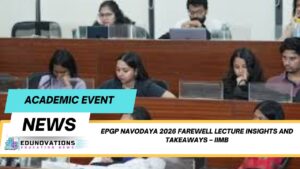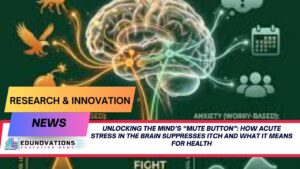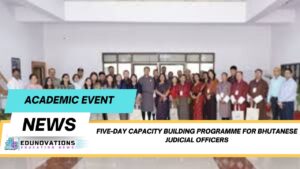Qamra Archival Project queer narratives workshop 2025 at NLSIU Bengaluru empowers LGBTQIA+ archives and counter storytelling—insightful and inclusive.
The Qamra Archival Project queer narratives workshop 2025 NLSIU Bengaluru recently took place at the National Law School of India University (NLSIU), marking a pivotal moment in preserving queer counter narratives through archival methodology. This deeply engaging, academic yet community-focused event brought together scholars, archivists, and LGBTQIA+ activists to explore new ways of documenting and safeguarding queer histories—invoking critical reflections and catalyzing future preservation work.
🌈 The Workshop in Context
Queer archives play a vital role in ensuring marginalized voices are not erased. The Qamra Archival Project queer narratives workshop 2025 NLSIU Bengaluru focused on:
- Methodologies for collecting oral histories and ephemera.
- Ethical frameworks for archiving sensitive community materials.
- Collaborative models involving academia, non-profits, and grassroots activists.
Held from May 10–12, 2025, the workshop featured expert-led sessions, panel discussions, and hands-on archival labs—highlighting the intersection of legal frameworks, personal narratives, and archival activism.
🏛️ Why This Workshop Matters
A. Amplifying Queer Counter Narratives
Mainstream archives tend to overlook queer histories. This initiative set out to:
- Center LGBTQIA+ voices.
- Reclaim and dignify marginalized pasts.
- Resist archival erasure.
Participants emphasized inclusive practices by engaging queer community members in decision-making.
B. Bridging Theory and Practice
Through lectures on metadata standards, legal rights, and digital archiving, the workshop provided real-world tools to build living, accessible queer archives. One expert framed it as “an archival justice journey, not a destination”.
C. Collaborations Enhance Impact
Presenters included legal scholars from NLSIU, heritage professionals, and collectives like Qamra. These partnerships fostered cross-sector collaboration and expanded archival reach.
Toppers Use Mind Maps to score more than 95%
NCERT Class 11th Commerce Mind Maps
Add to cartOriginal price was: ₹999.00.₹199.00Current price is: ₹199.00.NCERT Class 12th Chemistry Mind Maps
Add to cartOriginal price was: ₹199.00.₹75.00Current price is: ₹75.00.NCERT Class 12th Commerce Mind Maps
Add to cartOriginal price was: ₹999.00.₹199.00Current price is: ₹199.00.NCERT Class 12th Science Mind Maps
Add to cartOriginal price was: ₹999.00.₹199.00Current price is: ₹199.00.NCERT Mind Maps For Class 10th
Add to cartOriginal price was: ₹999.00.₹199.00Current price is: ₹199.00.
Purchase Today
🎤 Highlights from Speakers & Sessions
1. Judicial and Legal Scope
A NLSIU faculty member examined constitutional protections for LGBTQIA+ documentation, referencing Section 377 and the Puttaswamy judgment. Participants discussed legal hurdles around privacy and ownership in archiving personal stories.
2. Oral Histories as Testimonies
Activists shared powerful personal narratives from the queer community, supported by audience Q&A. A common theme was how recorded testimonies combat invisibility and foster collective memory.
3. Hands-On Archival Labs
Participants curated a digital mini-archive: selecting, scanning, cataloging, and annotating historical materials. Using open-source tools, they learned preservation and metadata tagging aligned with queer theory.
🔍 Expert Insight
Dr. Sneha Rao, a queer studies specialist from the University of Mumbai, reinforced that:
“Queer communities need archives that respect their agency in shaping how they’re remembered.”
She emphasized:
- Ongoing community consultation.
- Training queer interns.
- Treating archives as living entities.
📊 Statistics & Relevance
- Fewer than 12% of Indian archives maintain structured queer collections.
- Oral history projects across 5 Indian cities have recorded over 200 queer elders since 2018.
- Digital access ensured remote viewing for virtually 1000+ community members, expanding reach beyond physical sites.
These figures showcase the immense significance and rapid growth of queer archival efforts.
🔧 What Attendees Took Back
Participants departed equipped with:
- A curation roadmap: from selecting items to community metadata tagging.
- Legal awareness: navigating intellectual property and privacy.
- Digital toolkit proficiency: understanding image formats, OCR, and metadata.
- Network connections spanning scholars, activists, and archivists.
With this foundation, participants were ready to begin creating or enhancing queer archives in their home cities and organizations.
📌 Implications for NCERT Learners & Educators
Although focused on queer archiving, this workshop offers invaluable learnings for students and educators in broader archival and historical projects:
- NCERT Courses link: Explore modules on heritage and social history.
- Current Affairs: Understand constitutional protections and minority rights.
- Notes: Build structured learning materials from primary sources.
- MCQs: Test comprehension of legal frameworks and archival principles.
- Videos: Visual guides to oral history and metadata processes.
- Syllabus: Ideal for introducing archival projects into curricula.
- Downloads of Free NCERT PDFs: Obtain relevant textbooks and guidelines.
- NCERT Mind Maps: Visualize links between law, history, and marginalized voices.
🌐 Extending the Impact: Partnerships & Tools
Partnering with organizations like Mart Ind Infotech helps schools and archives build digital repositories—fulfilling technological needs in schools and small archives. Effective digitization requires:
- Secure and accessible storage.
- Metadata schemas tailored to each heritage project.
- Ongoing technical and curatorial capacity building.
🧭 Future Pathways for Qamra and Beyond
Key next steps include:
- Regional Replication: Workshops in Delhi, Kolkata, Mumbai, Chennai.
- Digital Archive Network: Collaborative repository featuring access controls and privacy safeguards.
- Training Modules: E-learning for oral history, data management, and metadata.
- Institutional Integration: Queer archives in university museums, libraries, and public institutions.
- Funding Appeals: Grants from heritage foundations, LGBTQIA+ organizations, and tech companies.
📝 10 FAQs About the Workshop & Project
- What was Qamra Archival Project queer narratives workshop 2025 NLSIU Bengaluru?
A three-day event focused on documenting LGBTQIA+ history through oral, digital, and community-archived methods. - Why focus on queer counter narratives archival workshop Qamra NLSIU highlights?
To highlight and preserve marginalized queer histories often absent in mainstream archives. - Who led the Qamra archival project NLSIU LGBTQIA+ archive training event?
Led by NLSIU lecturers, queer community leaders, and archival experts collaborating with Qamra. - How did the workshop support queer community history documentation event India?
Training attendees in ethical collection, metadata, scanning, and legal protections. - What tools were used in the archival workshop?
Open-source scanners, digital repositories, OCR tools, and metadata frameworks like Dublin Core. - Can schools access materials from the workshop digitally?
Yes, through partners like Mart Ind Infotech and linked NCERT resources—ideal for photo-based school projects. - Are there online courses on archival methods for students?
Yes, modules on NCERT Courses and free PDF downloads are available for educators and learners. - What role does law play in queer archival projects?
Legal sessions covered intellectual property, privacy rights, and the constitutional aspects of queer documentation. - How can someone start a queer archival project locally?
Begin with community interviews, safe-keeping physical artifacts, and building digital collections using beginner toolkits. - Will there be follow-up events after this workshop?
Yes—plans exist to expand the workshop regionally and build a national-level queer digital archive network.
✅ Conclusion
The Qamra Archival Project queer narratives workshop 2025 NLSIU Bengaluru has set the stage for a new era of queer archiving in India. By combining legal insights, digital tools, and community collaboration, it empowered participants to preserve meaningful queer histories. The initiative is a vital step toward archival justice, historical inclusion, and diversified heritage preservation.














